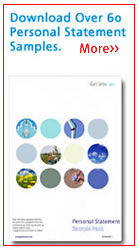Grammar And Style Guide - O
- Obfuscation.
- Don't use long words where short ones will do; it makes your writing dense and difficult to understand. Words ending in -ality, -ation, -ize, -ization, -ational, and so forth are often guilty of making sentences more complex than they need to be. Ask yourself if these suffixes can be removed without damaging the sense: if you can use a shorter form, you probably should; if you can take a big scary noun and make it a punchy and powerful verb, you probably should. For instance, "The chairman brought about the organization of the conference" can stand to trade that "brought about the organization of" for "organized" — "The chairman organized the conference." Much better.
Many of these guidelines — changing methodology to method, usage to use, functionality to function — are applications of this tip. See Concrete Language, Long Words, and Vocabulary.
- Old English.
- Old English, or Anglo-Saxon, is the technical term for the language spoken in England from around 500 to around 1100. (The most famous work written in Old English is Beowulf; you won't be able to understand a word of it without studying Anglo-Saxon.) Old English (or OE, as it's often abbreviated) was succeeded by Middle English (ME), the language of Chaucer; and ME was succeeded by Modern English (ModE) around 1500. This means Shakespeare wrote in modern English, even though it's loaded with thee's and doth's. You'll keep English teachers happy if you reserve the term Old English for truly Old English. See Latinate versus Germanic Diction.
- On a —— Basis.
- Often an unnecessarily long way of saying something. "On a daily basis," for instance, could just as easily be "daily," which can be both an adjective and an adverb. Instead of "The magazine is published on a monthly basis," use "The magazine is published monthly." See Economy.
- Only.
- Though it's not necessarily wrong to place the word only nearly anywhere in a sentence — English is mighty flexible — try for precision by putting the modifier next to the word or phrase it modifies. But do it only if you don't stand to lose grace. "We'll only write three papers this semester" might suggest we won't do anything else with these three papers. "We'll write only three big papers this semester" makes the meaning clearer. But if it makes your sentence clumsy or unidiomatic, nix it.
- Oxford Comma.
- See Commas.





